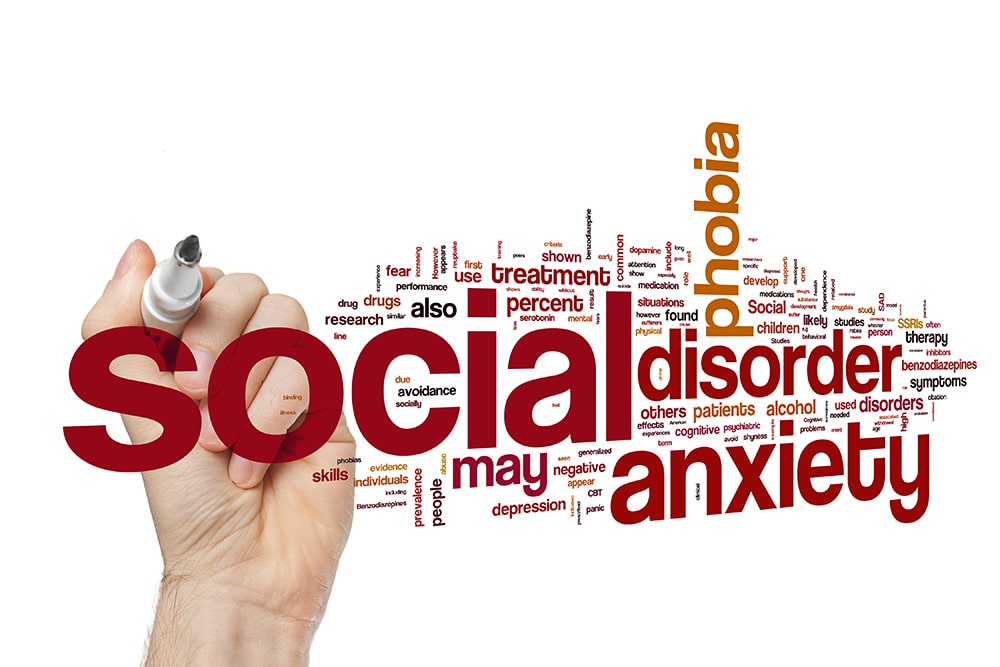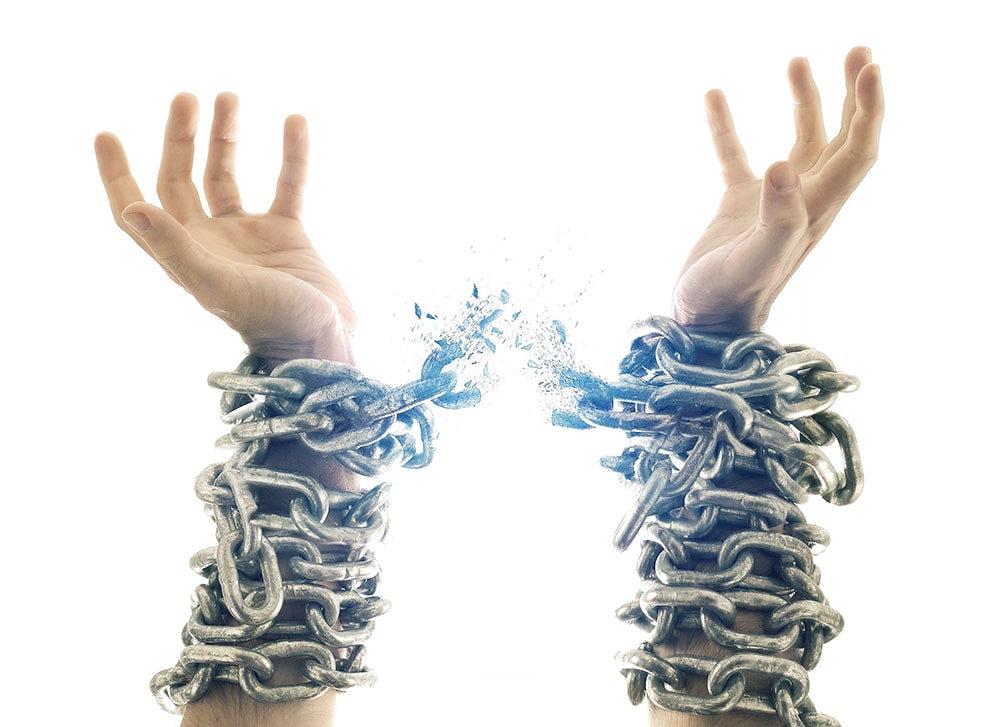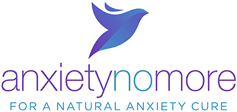How I overcome Social Anxiety

Social anxiety, also known as social phobia affects around 6% of the UK population. It affects men and women equally and is a fear of social situations and interactions, mainly based around the fear of being judged.
Due to this fear, sufferers will mainly go out of their way to avoid social situations. This then leads to the brain believing there to be danger in being around others. thus creating an over-reactive fear response to a normal experience. This is where it can become a catch-22 situation as the very place that can help the sufferer recover, are the very things they avoid the most.
But in my personal experience and with helping others overcome their social phobia, I have found that the root cause is mainly due to how the person views themselves. Sufferers are so busy judging themselves negatively that they believe others are too. The root cause for me mainly came down to how I felt about myself and my fear of being judged and found out.
So it is not just about getting comfortable with others and situations through a process of non-avoidance, it is just as important to get comfortable with yourself. When you begin to judge yourself more positively then you care far less about others judging you, which is what so much of social anxiety is built around.
Common behaviours and emotions when suffering from Social Anxiety
An irrational fear when interacting and communicating with others
Feeling a strong urge to escape the conversation
Feeling like things are closing in
Not knowing what to say, mind going blank
Rushing and stumbling over your words
Analysing everything you said or did later
Mentally checking in to how you are feeling
Worried about how you are coming across
Making excuses as to why you can’t stop and chat
Trying to sink into the background or excessive use of your phone so no one approaches you
Constantly making excuses not to attend social gatherings
Needing alcohol or some form of drug to cope around others
Physical symptoms of social anxiety
Racing heart
Sticky palms
Racing mind
Blushing
Feeling light-headed
Trembling
Feeling nauseated
My own story of overcoming social anxiety
Before I suffered from anxiety, I was a happy and confident person. Social situations never bothered me in the slightest. I would not say I could talk in front of a thousand people, but generally, I was pretty confident and had no trouble whatsoever around others.
When anxiety first hit me, I worried continuously about what was causing the sensations I was feeling. I thought deeply, day in, day out, trying to figure a way out of my own personal hell.
With this extra worry and stress on my already tired mind and body, I began to feel more anxious than ever. Not only that but by being so self-absorbed and concerned about myself on a regular basis, I was starting to feel detached from my surroundings.
Due to this constant self-focus, I also started to feel very self-aware of myself and my actions, and with the added feeling of detachment, it became challenging for me to follow or hold a conversation. This led to me either wanting to run away from interacting with others or babbling on as I tried to hide how I felt.
It was at this point that I started avoiding talking to people, and I was perceived as ignorant more than once. I don’t blame people for this perception of me and as far as I was concerned that was far better than having to go and talk to others. I just found it so difficult to hold a conversation, and I never enjoyed or felt part of it.
The reason I initially developed social anxiety was not that I feared people, it was because I found conversations so difficult. It was then through my continued avoidance of others that my mind started to associate people with something to fear. Previously interactions were just too much hard work, but now I had begun to feel anxious around others too. I had now created what people label social anxiety.
My mind was innocent in all of this process. It was just doing what it was designed to do and was protecting me from what I had been avoiding for so long, thinking that because of my previous actions, there was danger in being around others.
Not feeling part of the conversation
The main reason I felt detached from any conversation was that I always thought I had to hide how I felt. I thought I had to keep a lid on things and just get through it without the other person noticing how I was feeling.
Of course, because of this, I never felt part of the conversation as all my focus was on me, my inner state and how I was performing. I was not in any way present or engaged in the conversation, and so it was pretty much always a disaster.
It was like trying to hold a conversation with someone while reading a book. It was just not possible to have my attention on two things at once, and it now started to make sense as to why I never felt part of it or enjoyed it.
When my social anxiety began to improve

When I finally built up my understanding and found some answers to the way I was feeling, then a lot of my symptoms began to leave me, and I was able to mix a bit better, although conversations on some level continued to be difficult.
Depending on who I was around, I could still feel a little uncomfortable and not fully present, not as much as I once did, but there was still some anxiety hanging around. Although this progress was welcome and I started to mix a little more, I still wasn’t where I wanted to be; I wanted full freedom from this condition and not just minor improvements.
The first major breakthrough for me was to realise that people were not the problem here. My social anxiety had nothing to do with them. It was not people I was afraid of; it was the feeling of fear that I didn’t want to feel and so to avoid experiencing it, I thought the answer was to avoid others.
Finally seeing that I was blaming the wrong thing for my anxiety was huge for me. I realised that avoiding people was not the answer and I was blaming the wrong thing for my fear. This insight helped me shift the blame away from them, which in turn, helped turn down my mind’s fear reaction.
This shift could only be achieved by teaching it that I was fine and in no danger around others. One way to show it was through my actions of non-avoidance. It was avoidance that created this reaction, and so the opposite was the key to reversing it. The other thing I needed to do was bring a deep awareness to the old subconscious thought patterns running within my mind.
I had to begin to see through these faulty thoughts that were causing so much fear and avoidance and bring real awareness to them. I had to realise that my mind’s view of myself and others was utterly false. I wasn’t any less interesting to important than anyone else, and other people were not something to be avoided.
Previously I had taught my subconscious mind to see people as something to avoid. As soon as I saw a person I may have to speak with then my mind’s reaction was instant: “Oh no, here we go again, quick get it over with”. These subconscious thought patterns were what I had to bring awareness to and no longer identify with and follow.
The misleading thoughts were OK to come through habit, but I would no longer put belief into them and so would no longer be fooled or run by them. I had to take charge here and see through and override my faulty thinking patterns.
Realisations that helped free me from social anxiety

The main reason I found freedom from my social anxiety, was that I no longer followed my mind’s initial response to escape and began to regain control and make my own decisions. I always had this power; I just never used it.
I could have carried on following my mind’s reaction like a puppet for the rest of my life and continue to avoid and get nowhere. But I started to see how nonsensical it all was and that there was no real danger in being around others and began to override my mind’s fear reaction by staying put.
I did feel uncomfortable initially as my old fear reaction would continue to come but eventually through continued doing my brain realised that I was fine and so started to turn the fear reaction down.
By staying on this path, I was moving forward and training my mind that being in the company of others was normal and no threat. There was nothing to fear or run away from, and it was finally accepting that message. While I ran away or avoided the situation, I was sending the message that there was a problem and so the same fear reaction would continue.
I realised the only language my mind understood was my actions, it would always respond to the feedback I was sending it, that it was a survival machine and was just trying to protect me. When it finally got the message that I was no longer in danger, then this reaction would no longer be triggered.
By continuing this way I began to feel far less anxious and far less self-conscious. I was now sending all the right signals to my mind through my actions – “Look, there is nothing to protect me from. I’m fine now; there is no danger here”.
If it could speak back, it would have said ‘Yes I getting that now and I’m turning the fear response down for you, but before you were telling me the opposite by avoiding people, and so I was just doing my job and keeping you safe.’
My reply being, ‘I know, sorry it was my fault, I realise you were just doing what you were designed to do and following the message I was sending to you.’
You don’t need to fear, fear
With this new fearless approach things just got so much easier and the old me – the person who could chat away freely – was slowly coming back. I no longer had the urge to find a quick exit or avoid eye contact, and the self-defeating thoughts to escape were no longer present. The new habit had become me, and without the usual fear response, then there was no longer an instinct to retreat; I was back in charge.
I am not saying the above is easy initially; it isn’t, as every instinct tells you to do the opposite and retreat. That is why the fear reaction is there in the first place, it has that pull to follow it and escape, but you always have the power to override this pull. By overriding it, you are teaching your mind that it is not needed and so it begins to turn this reaction down.
You do have the power to allow yourself to feel this fear reaction within, without following it. These emotions can’t harm you; it is just a reaction in the mind and an energy shift in the body. If you want to progress in anything then you have to feel uncomfortable to feel comfortable again, are you willing to do that to regain your freedom?
Growth is never a simple path, and you may have setbacks along the way, there will be times when you feel uncomfortable. But trust me when you get to the end of it, you become a different person, you are even stronger because of it. Nothing is better than regaining your freedom the right way. You just have to take the first steps, be brave, and patient and the rewards at the end will be huge.
Learning to drop all your fake personas and masks

Another reason for my social anxiety persisting was that I never felt comfortable in my own skin. A lot of social anxiety comes from people not feeling comfortable with who they are, which can then lead to them thinking they are not as good as the person they are talking to.
It can then feel like a trial to impress, and a lot of thoughts can come up like ‘How am I doing?, ‘Do they like me? , ‘Do they notice how I am feeling?’ this inner dialogue can really affect the interaction, as it no longer felt like a conversation for me but a way of proving myself.
Due to what I had been through, I had lost a lot of confidence and because I didn’t particularly like myself, then I presumed others wouldn’t too. Due to this, I felt myself trying to be someone else to gain their acceptance and fell into a lot of people-pleasing habits. How ungenuine I felt about playing a role and the feedback I was getting for trying to people please only made me feel worse about myself and so I tried even harder. It was a terrible cycle to fall into until I saw it.
This role also became increasingly difficult and exhausting to keep up with and was another reason I avoided social interaction. I realised very quickly that this wasn’t the answer to my problems. To get over this I needed to regain my confidence and find and be myself once again.
I got to the point where I played so many different characters that I lost that person and I could never hope to feel comfortable around others when I didn’t even feel comfortable in myself.
Finding the true me again was a process and is another subject entirely and something I cover in both my books, but a big starting point was to no longer try to gain other people’s acceptance through people-pleasing or trying to be someone I thought others wanted me to be.
The real you is always there, you only lose it when you start to try and become someone you are not for the acceptance of others. In doing this, you end up taking on the role of the character you have created, you become a bunch of masks and fake personas instead of how you truly are.
It is never about trying to be yourself, it is about no longer trying to be someone else, then all you are left with is you.

